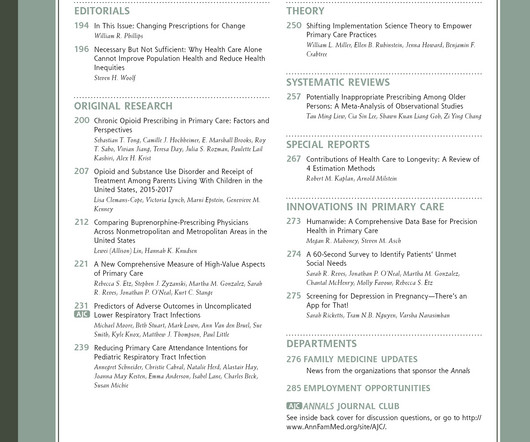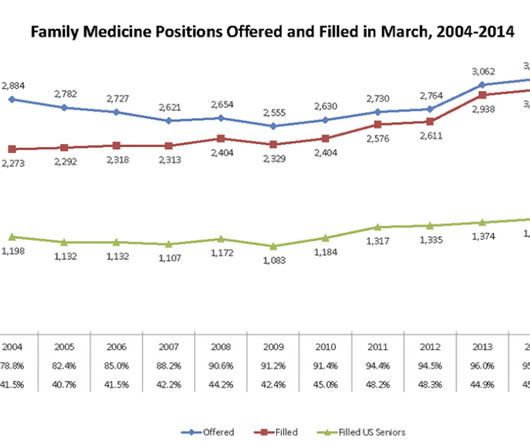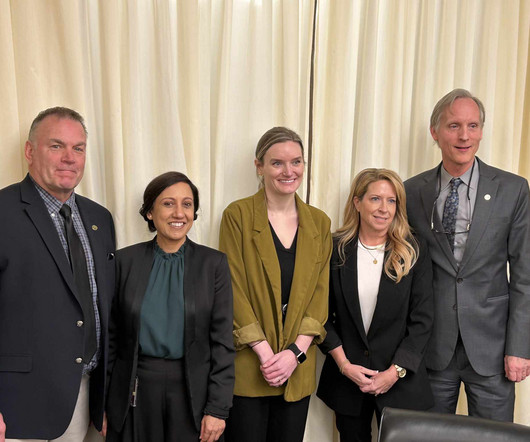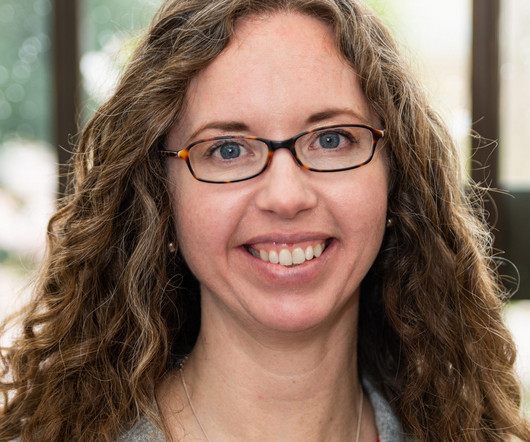Insights from an Operational Survey within the NNE CO-OP PCBRN [Research capacity building]
Annals of Family Medicine
NOVEMBER 20, 2024
Study Design and Analysis: The structured questionnaire covered various aspects of primary care practice, including the scope of clinical learners, specialties offered, onsite services, telehealth, EMR data querying, patient advisory groups, and IRB affiliation. Intervention/Instrument: N/A.
















Let's personalize your content